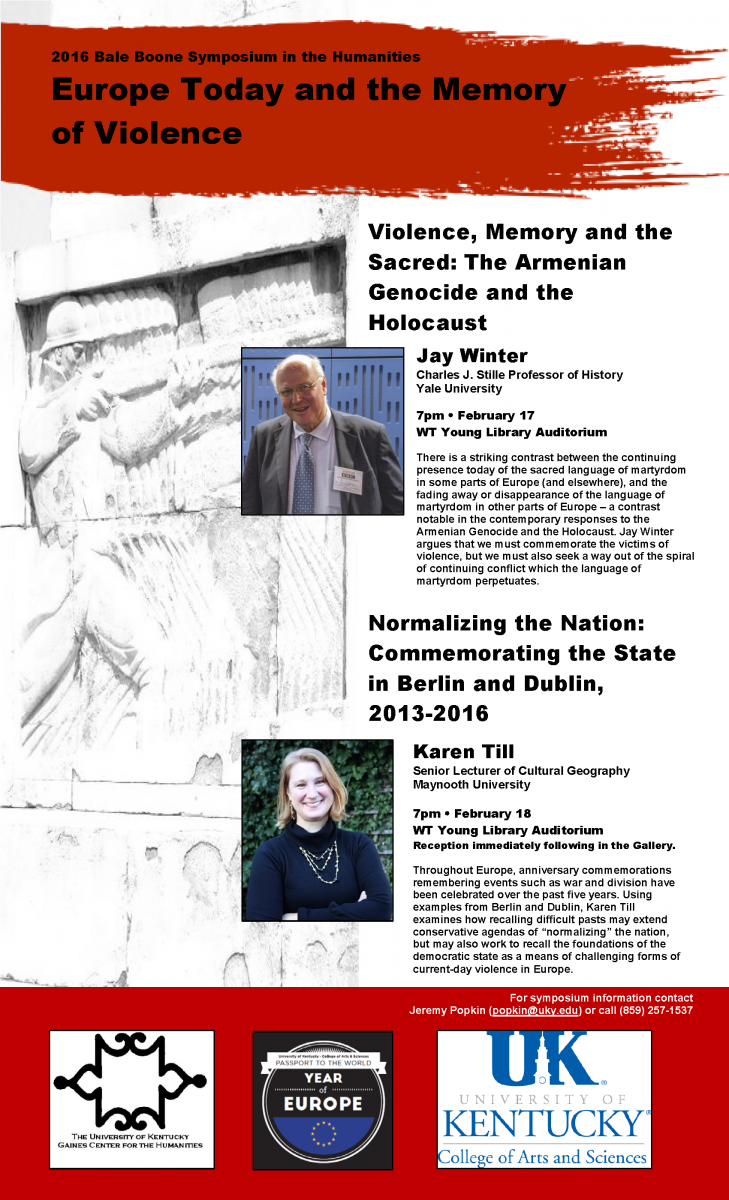Bale Boone Symposium: Europe Today and the Memory of Violence
Symposium: Europe Today and the Memory of Violence
All sessions at W. T. Young Auditorium, University of Kentucky
|
Schedule W. T. Young Library Auditorium |
||
|
9:00 |
|
Introductory remarks |
|
9:15 |
|
The French Revolution and the European Memory of Violence Jeremy D. Popkin, University of Kentucky |
|
10:00 |
|
Law, Morality, and Violence in Nazi Germany Herlinde Pauer-Studer, University of Vienna |
|
11:15 |
|
“Inadmissible” but Secondary: Algerians, the Parisian Police and the Afterlives of State Terror Lia Brozgal, UCLA |
|
1:30 |
|
Weapons of Mass Instruction: Historical Narratives as a Destructive and Reconstructive Force in Former Yugoslavia Charles Ingrao, Purdue University |
|
2:30 |
|
Narcissistic Group Dynamics and the Threat of Violence within Liberal Democracy Stefan Bird-Pollan, University of Kentucky |
|
3:45 |
|
Aftermath of Violence: Reconceptualizations of Trauma Sara Beardsworth, University of Illinois-Carbondale |
|
4:45 |
|
Concluding round table
|








